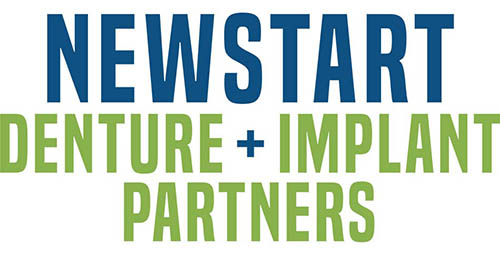Dental implant infections can be avoided in most cases with smart daily habits and timely professional care. This guide explains what causes infection, how to spot early warning signs, and proven preventive measures you can start today. Whether you are getting dental implants or already living with them, your chances of long-term success are better when you understand risks and act early.
NewStart Denture provides expert implant support in the Raleigh, NC area, from implant placement to long‑term maintenance and restorations.
What dental implants are and why infections occur
Dental implants replace missing teeth with a titanium post that bonds to bone and supports a crown, bridge, or denture. Many people choose implants because they look and feel like natural teeth, and can function as a permanent tooth. With proper oral hygiene and regular checkups, dental implants can last decades.
Infections develop when bacteria collect around the implant and inflame the gums and bone. Early gum inflammation around the implant is called peri-implant mucositis. When inflammation extends deeper and causes bone loss, it becomes peri-implantitis, a more serious implant infection. Prompt treatment protects bone and lowers the risk of implant failure.
Causes of implant infection
Several factors raise the risk of implant infection:
- Poor oral hygiene, which allows bacterial plaque to remain around the implant and under the gums
- Existing gum disease, including periodontal disease before placement
- Smoking or vaping, which reduces blood flow and slows healing
- Diabetes, especially if blood sugar is not well controlled
- A weakened immune system, due to medical conditions or medications
- Residual cement or ill‑fitting restorations that trap bacteria around the implant
- Grinding or heavy bite forces that stress the implant site and surrounding tissues
Lifestyle changes, excellent oral hygiene, and consistent follow‑up care reduce complications.
Early warning signs and symptoms
Recognizing early warning signs gives you the best chance to stop infection quickly. Contact your dentist immediately if you notice:
- Swollen gums or redness around the implant
- Bleeding during brushing or flossing
- Tenderness, throbbing pain, or persistent discomfort near the implant site
- Bad breath or an unpleasant taste that does not go away
- Pus, gum recession, or a crown that feels loose
- Sensitivity when chewing or tapping on the tooth
These symptoms often indicate peri-implant mucositis. With early detection and care, it can be reversed before the bone is affected. If left untreated, peri-implantitis can develop and progress to bone loss and implant failure.
Can a dental implant get infected after years?
Yes. An implant infection can occur months or years after the initial healing if bacteria build up by the implant, oral hygiene declines, or new medical risks develop. Regular follow-up visits help catch subtle changes near the implant before further complications develop.
How dentists diagnose implant infection
Your dentist evaluates the gums around the implant, checks pocket depths, and looks for bleeding. Dental X‑rays assess bone levels, and cone beam computed tomography can show 3D details when needed. In certain instances, laboratory tests or cultures may be taken.
Professional exams, combined with your report of symptoms like pain, swelling, and bad breath, guide a precise treatment plan. The goal is to stop infection, protect bone, and preserve function.
Why untreated infection is serious
When an implant infection is left untreated, bacteria can damage bone and the soft tissues around the implant. Over time, progressive bone loss weakens support, increasing mobility and the risk of implant failure. Infection can spread to surrounding tissues and may worsen systemic health issues, especially in people with diabetes or a weakened immune system. Severe cases sometimes require surgical intervention. Early care limits complications and helps save an infected dental implant.
Treatment options for an infected dental implant
Your dentist tailors treatment to the severity of infection, bone loss, and your overall health:
- Nonsurgical care and biofilm removal: The first step is mechanical debridement (removing plaque or debris) with specialized implant‑safe instruments, air‑polishing powders, and ultrasonic tips to clean around the implant. This reduces inflammation and helps gums heal.
- Antiseptics and adjuncts: Short courses of antiseptic rinses, such as chlorhexidine, and local antimicrobial gels may be used around the implant to lower bacteria.
- Antibiotic treatment: In selected cases, antibiotics are prescribed to combat infections that extend beyond the gums or when signs suggest spreading infection. Antibiotics support, but do not replace, thorough cleaning of the implant surface.
- Bite adjustment and repair: If bite forces are excessive, your dentist may adjust the restoration, repair a loose abutment screw, or recommend a night guard.
- Surgical intervention: When bone loss is advanced, flap surgery may be needed to access and decontaminate the implant surface, reshape bone, or attempt regeneration. In some severe cases, removing the infected implant is the safest way to protect dental health.
Nonsurgical therapy is often effective when peri-implantitis is caught early. If you have pain, swelling, or bleeding, see your dentist immediately for evaluation.
How to prevent dental implant infections
Most dental implant infections can be prevented with daily care and smart choices. Focus on these pillars:
- Excellent oral hygiene: Brush 2 times daily with a soft or extra‑soft brush and low‑abrasive toothpaste. Clean under the crown margin and around the implant with interdental brushes designed for implants. A water flosser can help disrupt plaque around the implant.
- Antibacterial mouthwash: Use an alcohol‑free antibacterial mouthwash, especially during healing or when gums are inflamed.
- Professional maintenance: Schedule regular implant‑focused cleanings. Your dentist will set the interval, often every 3 to 6 months, based on your risk for infection.
- Avoid smoking: Quitting improves blood flow and healing, and it lowers the risk of infection and implant failure.
- Medical care: Keep diabetes well controlled, and review all medications with your dentist. A weakened immune system may require more frequent maintenance.
- Diet and physical activity: Choose a balanced diet and maintain regular physical activity that supports immune function and overall well-being.
- Protect restorations: If you clench or grind, use a night guard to reduce stress on the implant.
If you are experiencing signs of dental implant infection in the Raleigh, NC, area, reach out to the team at NewStart Denture for a consultation.
After the dental implant procedure
Follow all aftercare instructions from your clinician. Typical guidance includes soft foods, gentle brushing near the surgical area, and avoiding vigorous rinsing for the first 24 hours. Take prescribed antibiotics as directed if they are part of your plan, and use pain control as instructed. Keep your first follow‑up appointment to check healing around the implant. If a crown or bridge will be attached later, your dentist will confirm the gums and bone are stable before final restoration.
Long-term maintenance
Implants require periodic professional assessments to prevent infection. Your team may measure pocket depths around the implant, monitor bone levels with X‑rays, and evaluate the fit of the restoration. Maintenance care tailored to your risk can prevent peri-implantitis from developing or returning.
Frequently asked questions
Infection after placement is uncommon when risk factors are managed and aftercare instructions are followed. Reported rates vary based on health, smoking, and oral hygiene. Good pre-surgical planning and regular follow‑up lower the risk of complications.
Common signs include swollen gums, bleeding with brushing, pain or tenderness, bad breath, and an unpleasant taste. You may also notice that the crown feels different when you bite. If you notice any signs of infection, schedule an exam for early detection and prompt treatment.
Home care supports, but does not replace, professional treatment. Keep the area clean, use an antibacterial mouthwash, and avoid poking the gums. Do not start or stop antibiotics without guidance. If you have pain, swelling, or fever, contact your dentist immediately.
Dentists combine mechanical cleaning around the implant, antiseptics, and antibiotics when indicated. Bite adjustments may be needed. If bone loss is present, surgical intervention may be considered to access the implant surface, decontaminate it, and, in some cases, attempt bone regeneration. If damage is extensive, removing the infected implant might be the safest option.
Often, yes. If peri-implantitis is treated before extensive bone loss, an infected implant can stabilize with a combination of professional cleaning, antibiotics, antiseptics, and bite adjustments. When bone loss is advanced, surgical intervention may be required to access the implant surface and attempt regeneration. If the infected implant cannot be saved safely, removal protects the rest of your oral health, and replacement options can be discussed.
Antibiotics help control bacterial infection, especially when there is swelling, pus, or systemic symptoms. However, antibiotics alone rarely resolve peri-implantitis because bacteria live in sticky biofilm on the implant surface. Your dentist may combine antibiotics with local antiseptics, professional cleanings, and close follow‑up to prevent further complications.
Evidence and resources
For trusted overviews of peri-implantitis and prevention, see the American Academy of Periodontology on peri-implant disease. This page explains how gum inflammation around the implant can progress to peri-implantitis, why antibiotics are used along with professional cleaning, and how maintenance prevents bone loss.
Partner with NewStart Denture for ongoing care
Preventing dental implant infections takes teamwork. NewStart Denture supports you through the dental implant procedure, from planning and placement to long‑term maintenance and restorations. Our clinicians provide personalized aftercare instructions and monitor healing so issues are found early and managed promptly.
If you are experiencing symptoms or want a preventive check, take immediate action and contact the office for an evaluation. With excellent oral hygiene, regular maintenance, and timely treatment, most implant infection problems can be avoided, and you can enjoy a confident and beautiful smile for years.

 Contact Us Today
Contact Us Today
 NewStart Denture & Implant Partners
NewStart Denture & Implant Partners